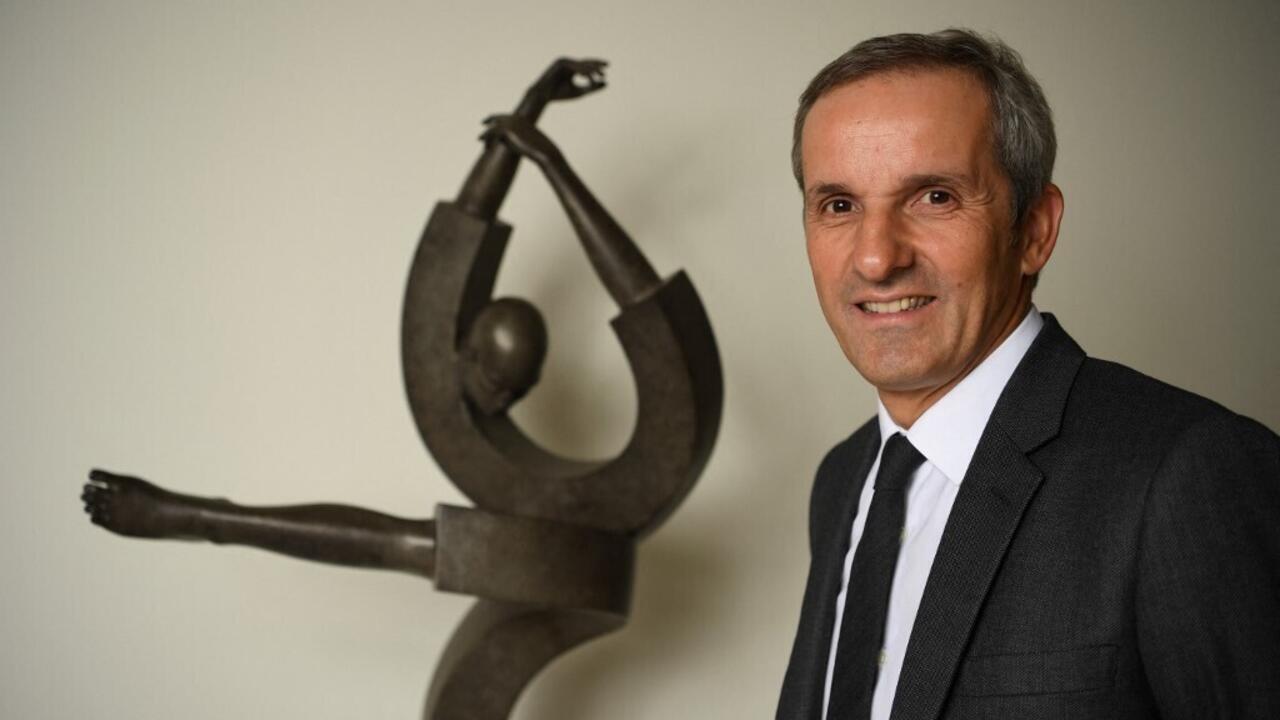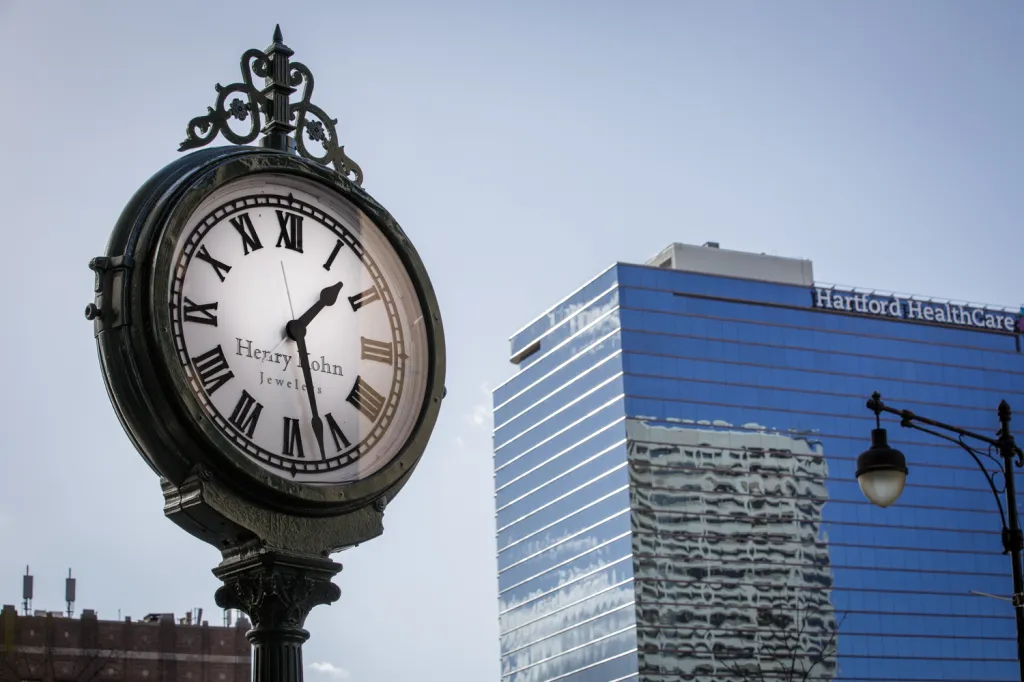Copyright rfi

Soaking up France’s deficit means saving €44 billion in next year's budget. And an already deeply divided parliament can’t work out how to do it: the left wants a wealth tax, the right wants cuts in public spending. This disagreement has brought down two governments in less than a year. The bill was meant to be agreed by Tuesday this week. It wasn’t – and the wrangling continues. “We’re in total political deadlock. We don’t know whether we’ll have a budget at the end of the year. That means a great deal of uncertainty, and there’s nothing worse than uncertainty for business development," says Pascal Demurger, head of mutual insurance company MAIF and co-president of the Impact France Movement, which aims to "put ecological and social impact at the heart of business". Anger over who should bear the cost of fixing France’s finances has pushed people on to the streets. In September, nearly a million marched in Paris and other cities to protest against spending cuts. Many carried signs calling for higher taxes on the rich – such as Bernard Arnault, head of the €256 billion luxury group LVMH. Thanks to various tax optimisation measures, and corporate tax cuts under President Emmanual Macron, large companies now pay an effective rate of just 25 percent – about half that of the average French person. Opinion polls show the majority of people want that to change. Demurger recognises that the lack of fiscal justice is fuelling social anger and says France’s wealthiest should contribute more. “It’s obvious that people in France today find it hard to accept paying more tax or making an effort if they feel that the richest members of the population aren’t contributing,” he told RFI. “There’s a real issue of social appeasement. We won’t achieve acceptance of necessary reforms unless everyone feels the burden is fairly shared between the richest and the middle classes.” Swimming against the tide Demurger took over MAIF in 2009. The company calls itself a “militant” insurer – an unusual term in business circles. All contributions from its 4 million policy holders go to pay claims – accidents, thefts – rather than shareholders, while profits stay in the company and are reinvested. Demurger had doubts about the proposed “Zucman tax” on assets higher than €100 million, set at 2 percent and rejected by MPs, but he supports extending a temporary corporate tax first introduced for 2025. The levy, originally meant to apply for one year, targets firms with more than €3 billion in annual revenue. “MAIF’s turnover is €5 billion, so we’d be affected. It would cost us a bit more than €20 million, but it’s an effort we’re ready to make to contribute to social calm and to finding solutions," he says. "I think it’s by setting an example that we can get most people on board and calm this public anger down a bit.” After the government agreed to keep the temporary tax in the 2026 budget, MPs passed a slightly amended version last week. Companies earning more than €3 billion will pay 33.8 percent instead of 35 percent, and those with between €1 and €3 billion will pay 26.25 percent. Demurger’s support for a fairer contribution from big companies and their leaders puts him at odds with much of France’s business establishment. Patrick Martin, head of the Medef employers’ union, has said companies shouldn’t pay “a euro more” and threatened to strike if a new levy was introduced. While Demurger admits business costs in France are “extremely heavy”, he says such hard-line positions make things worse. “We just don’t agree. By taking extremely hard-line positions, [Martin] maintains a situation of political deadlock and social anger, and in the end this penalises businesses and the economy.” Longer term stability Demurger is also out of step with the Afep association representing the country’s largest companies. It claims the continuation of the temporary tax will hurt investment. “The National Assembly’s vote to extend the extra tax on large companies is an error,” said Afep president Patricia Barbizet in a statement. “[It] will inevitably hamper companies’ capacity to invest in France at a time when we need French and European champions more than ever and therefore need to accelerate our investments.” Demurger says political instability is just as damaging. He pointed to the collapse of Prime Minister Sébastien Lecornu’s first government, which lasted just 14 hours. “That Monday morning, the Paris stock exchange fell sharply and interest rates on state borrowing increased. That adds to the public debt, which in turn raises interest payments, in a kind of snowball effect. “For a company like MAIF, which holds assets including shares, we lost considerably more in the stock market fall that morning than the amount of the extra corporate tax we’d be ready to pay. Making an extra effort might not cost businesses so much after all, while refusing to do so could cost the French economy far more.” Purpose as well as profit MAIF’s “militant” identity also shapes how it operates. The company avoids fossil fuel investments, supports renewables and uses recycled vehicle parts for repairs to cut emissions. Its 8,000 employees work under a trust-based management system. “Our management is based on trust, people are given a lot of autonomy and can take initiatives to do their jobs in a more impactful way,” Demurger says. He describes visiting MAIF’s headquarters in Niort and discovering major works that had got under way without his approval. “The facilities manager told me they were installing a geothermal system to heat and cool the building – entirely carbon neutral. He hadn’t even told me. That shows the culture.” He says such independence improves results. “When management cares about employees’ wellbeing, gives them room to act, and focuses on purpose as well as profit, people are happier and more engaged, and collectively, we’re more efficient.” Staff turnover is low, absenteeism has fallen and the company’s reputation as an employer has grown. “We attract more talent. It’s a virtuous circle,” he adds. Demurger didn’t always think this way. “I started out managing the company in an extremely classic way,” he says, but later realised he had a duty to ensure people feel good in their work and their lives. “I saw that by trying to reconcile employees’ wellbeing, customer satisfaction, social impact and company performance, we could achieve far more relevant results than by opposing them.” Spreading the impact Demurger also co-chairs Impact France, a network of 30,000 socially and environmentally responsible companies. When he took the role in 2023 there were just 8,000. “There’s extremely strong growth in companies of all sizes, including some of France’s biggest groups.” The network lobbies for measures to make state aid conditional on environmental commitments. A Senate report says France’s biggest corporations received €211 billion in state aid in 2023, with no checks on how it was used or what results it brought. Impact France also wants the 25 percent corporate tax rate to be adjusted to reward sustainable practices. "Today all companies pay the same rate of corporate tax. So if I run a firm that invests in de-pollution, and another in the same sector makes no effort, we pay the same," Demurger points out. "That doesn’t encourage investment and it’s not good public management.” A smarter tax system, he says, would reduce public health and environmental costs long-term. Change in governance In his recently published book Gouverner autrement! ("Governing Differently"), Demurger argues that the horizontal, participative, trust-based management style he employs in his company should be applied to the political sphere. He pleads a more adult approach to governance. "Those in power must give up the ultra-vertical practices that infantilise [us] and the illusory quest for absolute control," he wrote on social media. "It must also dare, at last, to break free from the dictatorship of short-termism, rethink our model, and set out hopeful prospects." This means moving away from the idea that France is “ungovernable” or an “archipelago” lacking unity – labels used by some politicians, including the French president. "I’m a great believer in finding solutions, not just compromises," says Demurger, whose name was floated last year as a possible prime ministerial pick after Michel Barnier was ousted in December 2024. Before moving into business, he had a six-year stint as a civil servant at the budget department of the French Ministry of the Economy and Finance. But in a recent interview with RTL radio, Demurger said he was "lucky to run a wonderful enterprise and loved [his] job", putting paid – for the moment – to rumours he could return to the world of politics.



